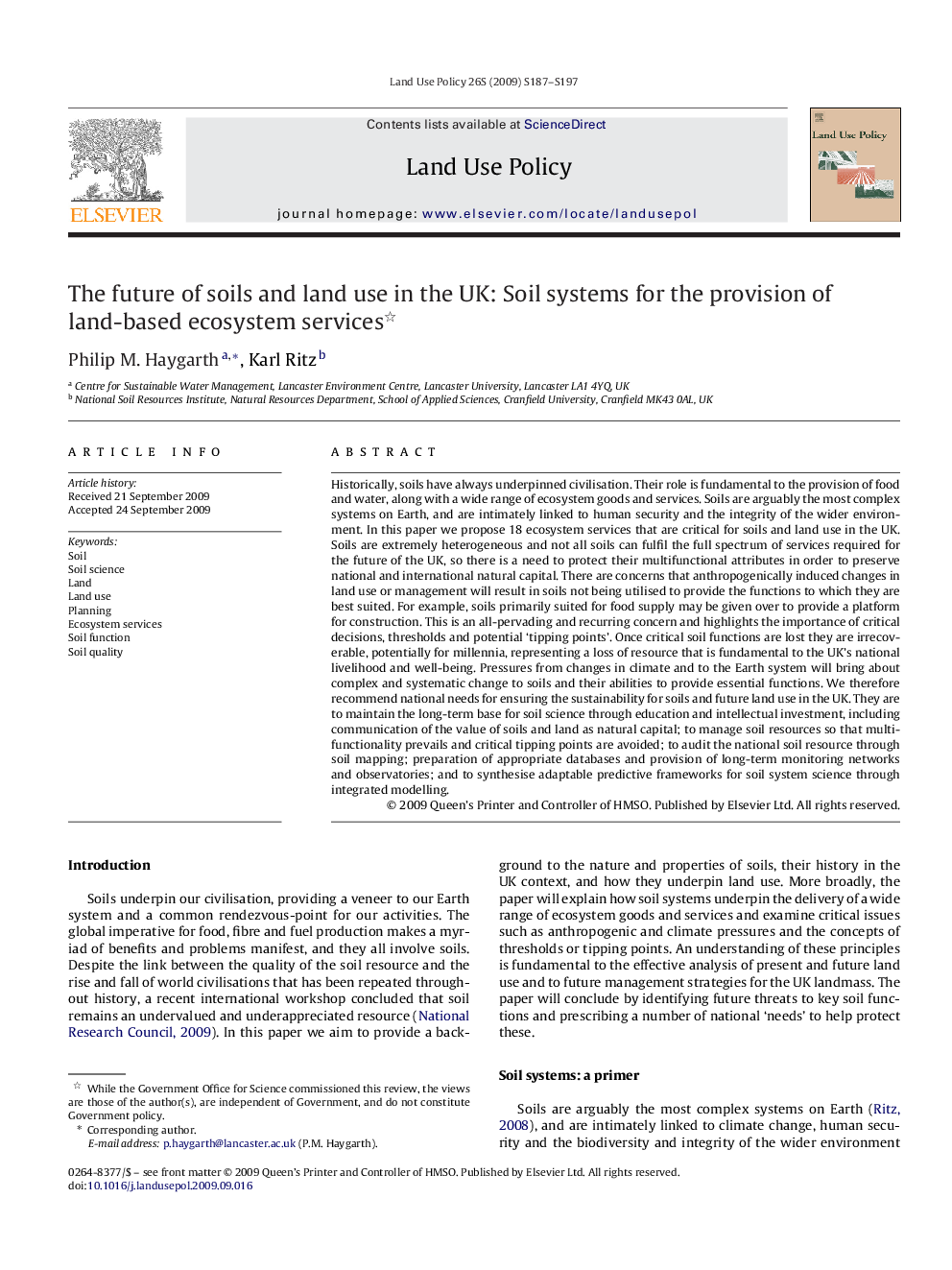| Article ID | Journal | Published Year | Pages | File Type |
|---|---|---|---|---|
| 93776 | Land Use Policy | 2009 | 11 Pages |
Historically, soils have always underpinned civilisation. Their role is fundamental to the provision of food and water, along with a wide range of ecosystem goods and services. Soils are arguably the most complex systems on Earth, and are intimately linked to human security and the integrity of the wider environment. In this paper we propose 18 ecosystem services that are critical for soils and land use in the UK. Soils are extremely heterogeneous and not all soils can fulfil the full spectrum of services required for the future of the UK, so there is a need to protect their multifunctional attributes in order to preserve national and international natural capital. There are concerns that anthropogenically induced changes in land use or management will result in soils not being utilised to provide the functions to which they are best suited. For example, soils primarily suited for food supply may be given over to provide a platform for construction. This is an all-pervading and recurring concern and highlights the importance of critical decisions, thresholds and potential ‘tipping points’. Once critical soil functions are lost they are irrecoverable, potentially for millennia, representing a loss of resource that is fundamental to the UK's national livelihood and well-being. Pressures from changes in climate and to the Earth system will bring about complex and systematic change to soils and their abilities to provide essential functions. We therefore recommend national needs for ensuring the sustainability for soils and future land use in the UK. They are to maintain the long-term base for soil science through education and intellectual investment, including communication of the value of soils and land as natural capital; to manage soil resources so that multi-functionality prevails and critical tipping points are avoided; to audit the national soil resource through soil mapping; preparation of appropriate databases and provision of long-term monitoring networks and observatories; and to synthesise adaptable predictive frameworks for soil system science through integrated modelling.
